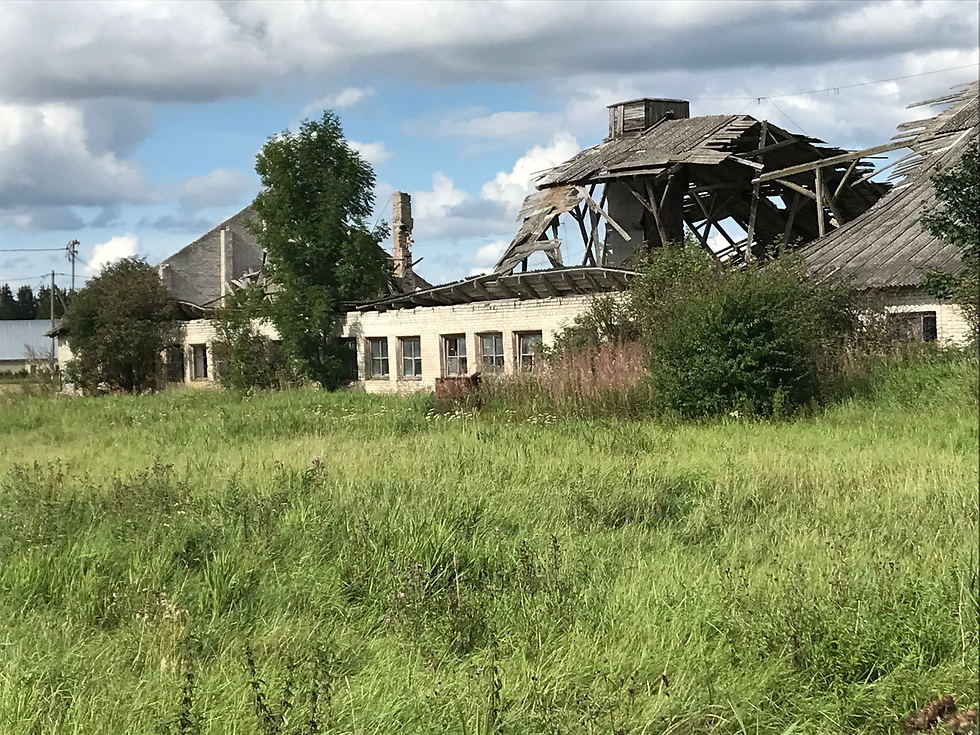A monument to socialism
- bernienapp
- Dec 26, 2023
- 2 min read
Updated: Aug 10
Everywhere we cycled in Estonia the abandoned ruins of white, silicate brick buildings spoke mute testimony to the failure of collective farming. This attempt at social equality delivered poverty to all (except for Communist Party members).

It is not difficult to trace the cause: working for the benefit of all works only if everyone plays their part equally. In no group of human beings does this ever occur as every school pupil knows from being forced to do joint assignments.
In Estonia, as elsewhere in the USSR, the result was a populace facing starvation. The solution under Soviet rule led to our grandmother’s siblings on the farm, and everyone else on the land, growing food on private plots for their own use.
This diversion of effort only sped the demise of the koolhos, the collective farm. Following Estonia’s restoration of independence in 1991 a rearrangement of land ownership immediately improved the productivity of land and people.
A decent society is one that provides equality of opportunity; because resources are naturally scarce, it cannot guarantee equality of outcome, because all people are different. This is Economics 101, really, and lost on social democrats throughout the world who seem to have forgotten the Soviet experience of socialism.
In New Zealand we had until recently a government who legislated "fair pay" for all doing the same job, regardless of how they worked, or whether they turned up to work. After a change of government in late 2023 an employer can now reward employees who show promise, a return to private incentives.
In Estonia, I asked people why the rotting ruins of the Soviet era are left to stand, and one explanation is the bricks are no good for recycling into new buildings.
Very diplomatic, but I can’t help feeling it’s deliberate, a reminder of a system that did not work, that could not work. I took only one photo of a Soviet white-brick ruin; the story of one such wreck is the story of all.
An exhibition on Estonian independence at the museum in the castle at Kuresaare on Saaremaa is not without a bitter sense of humour: “Capitalism is the exploitation of man by man; with socialism, it’s the other way around,” an old joke painted on a stair riser. Another: “Socialism is the longest road to capitalism.”
Estonia struck me as a country that wants to get ahead, to leave behind its Soviet past. It’s also a country that accepts its ethnic Russian-speaking population who are free to embrace Estonian language and culture, and citizenship, or not.







Comments